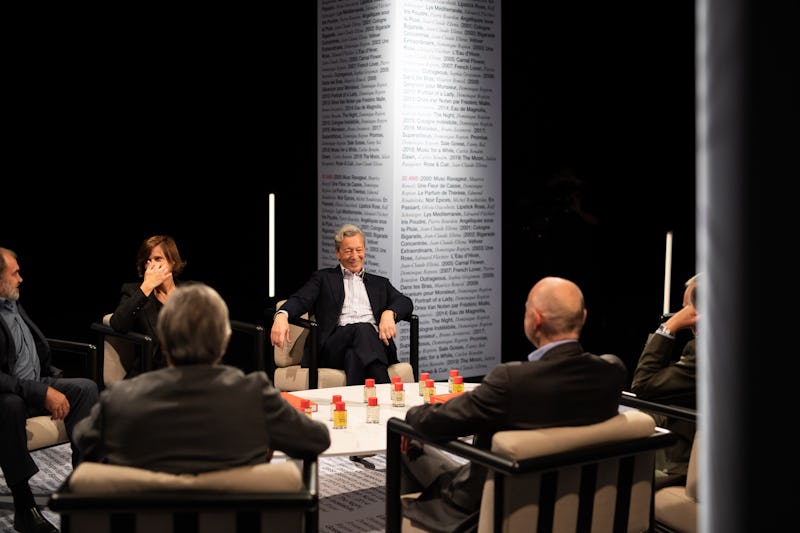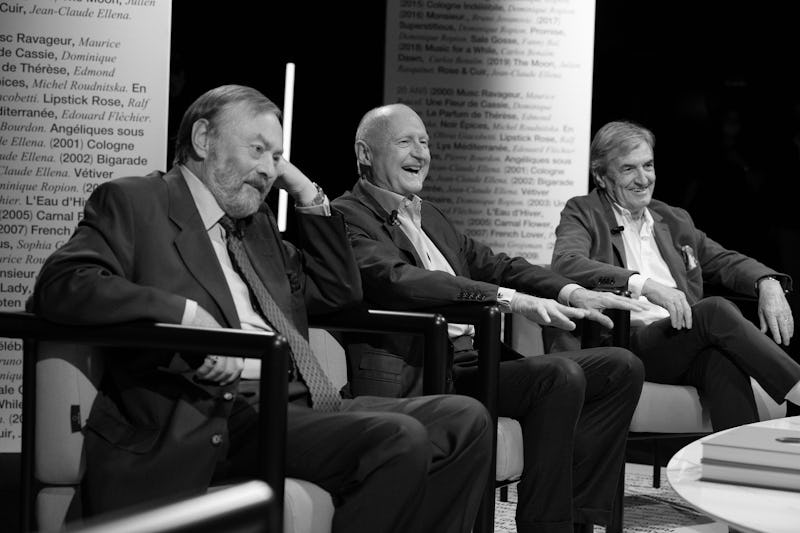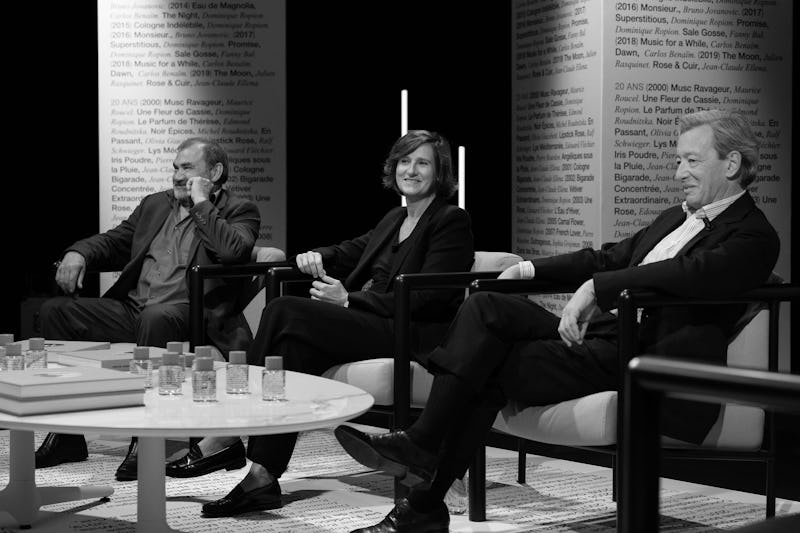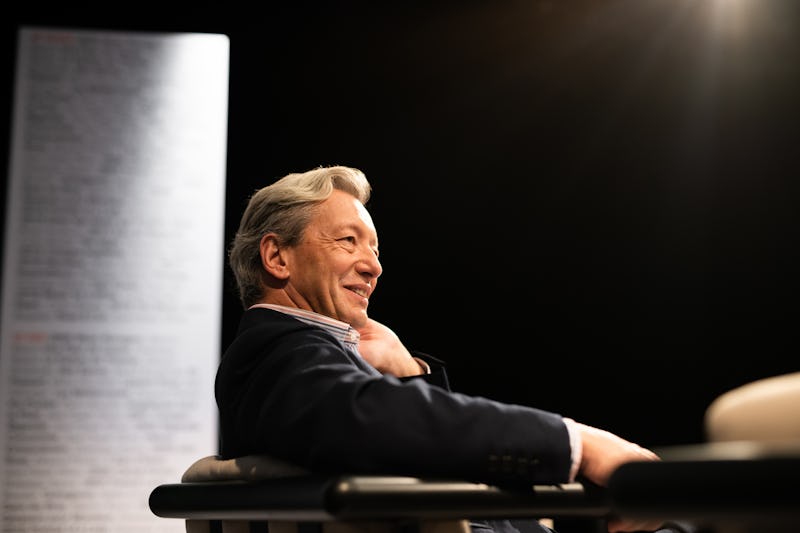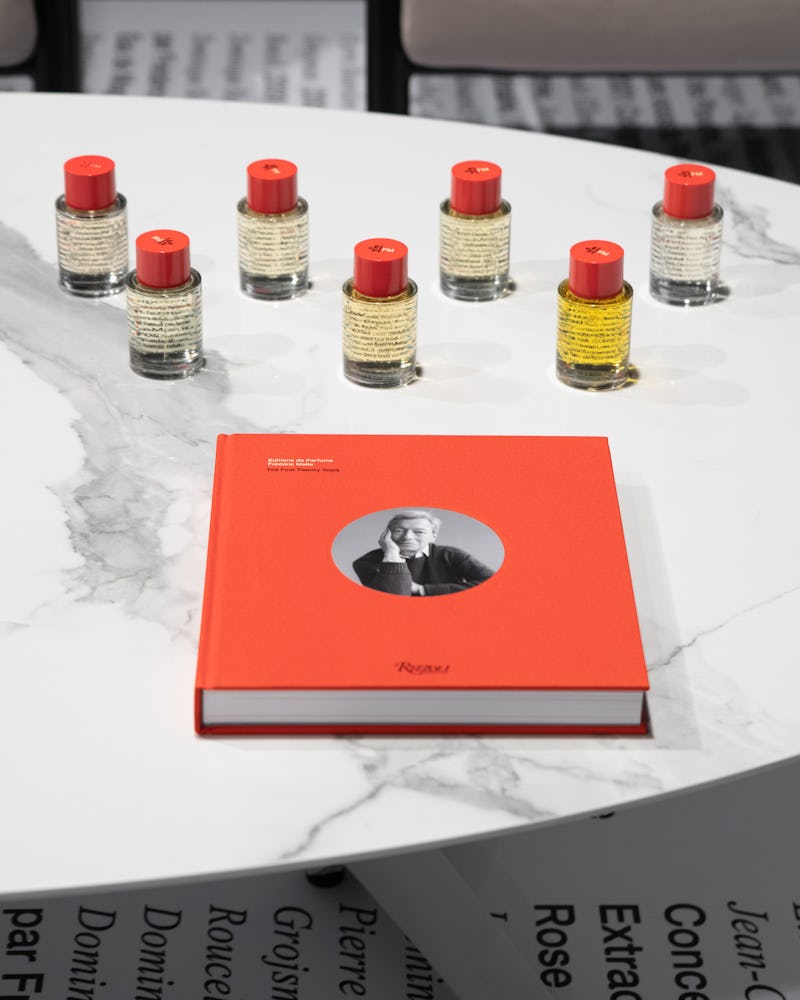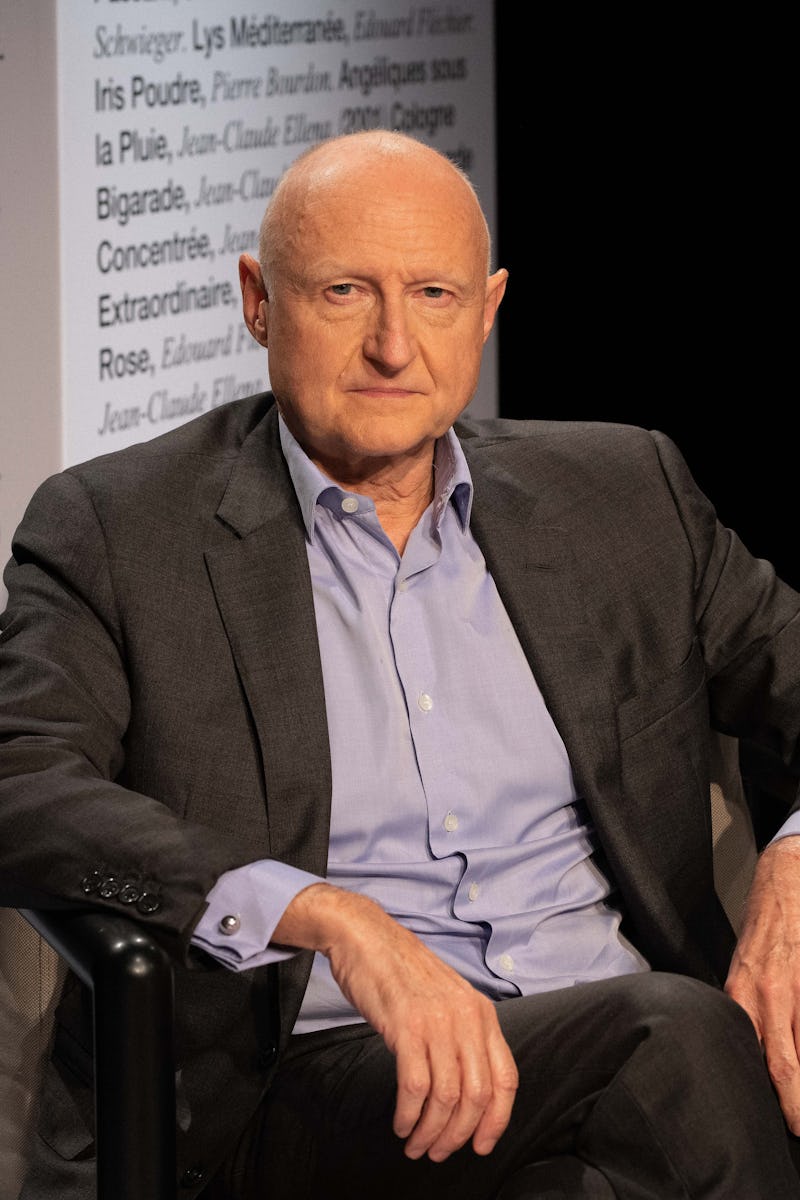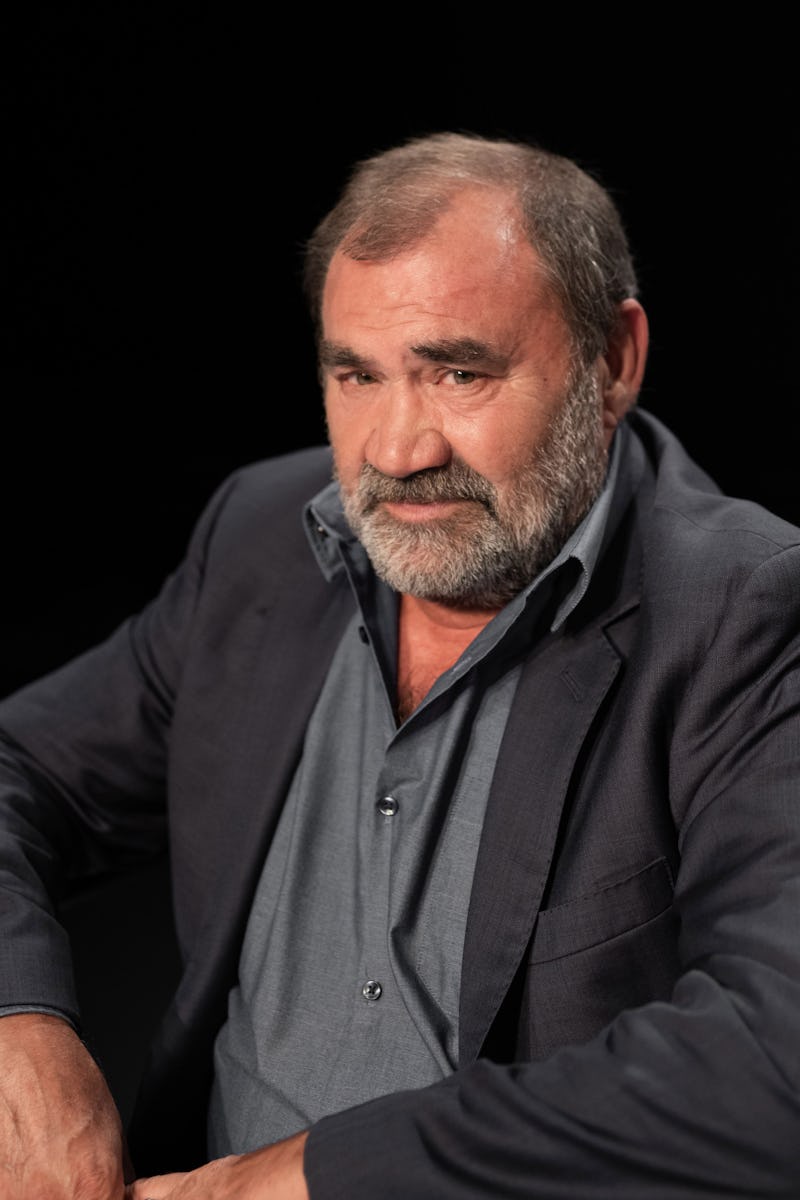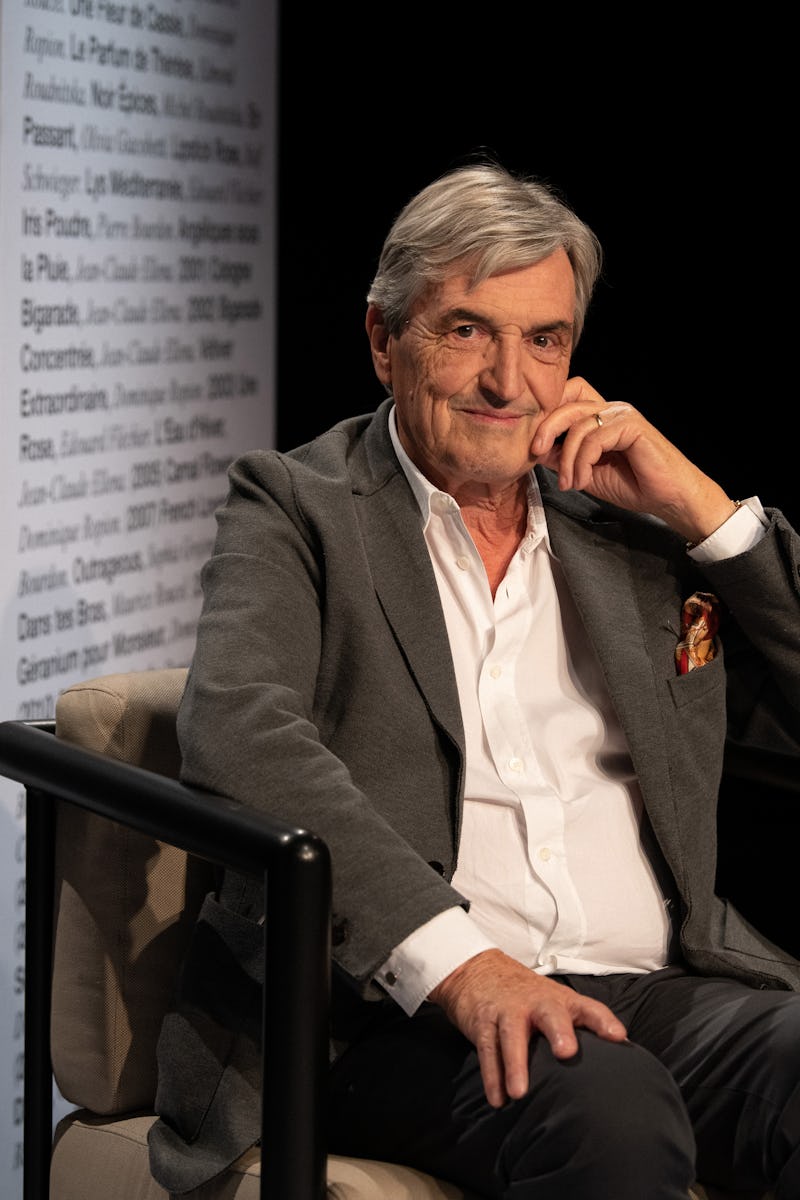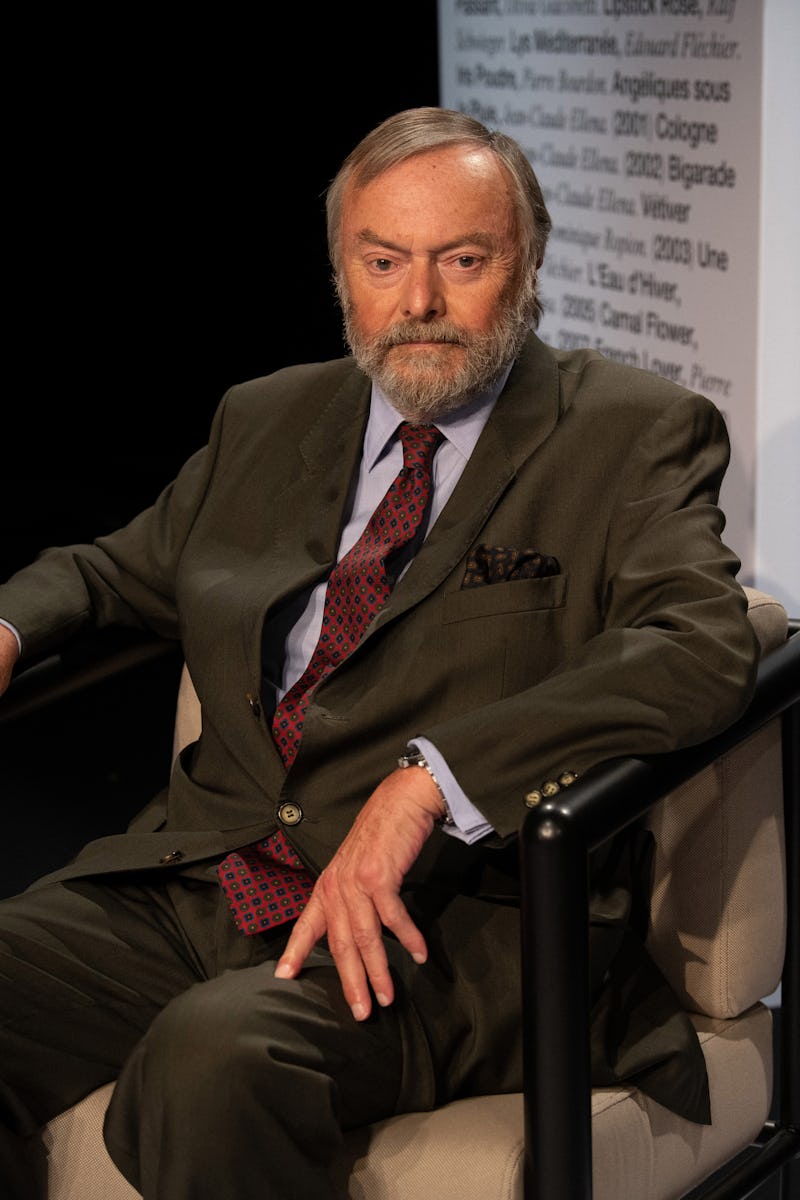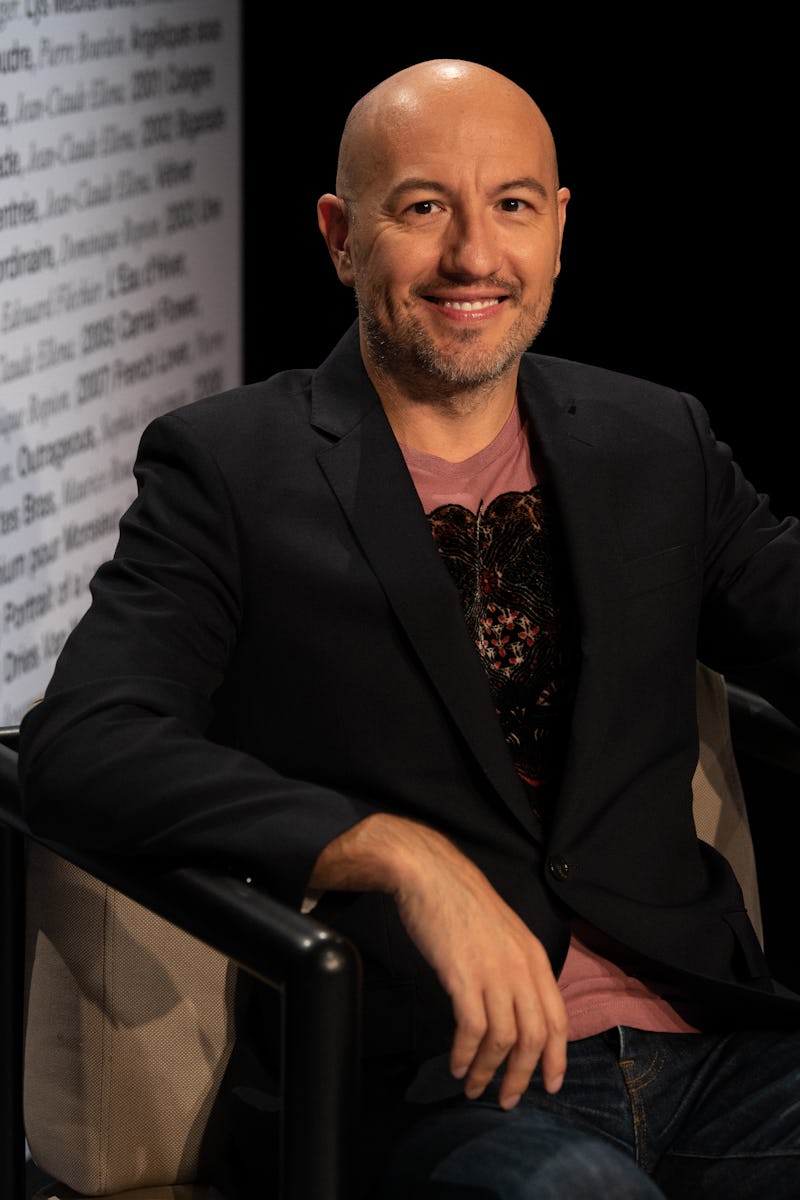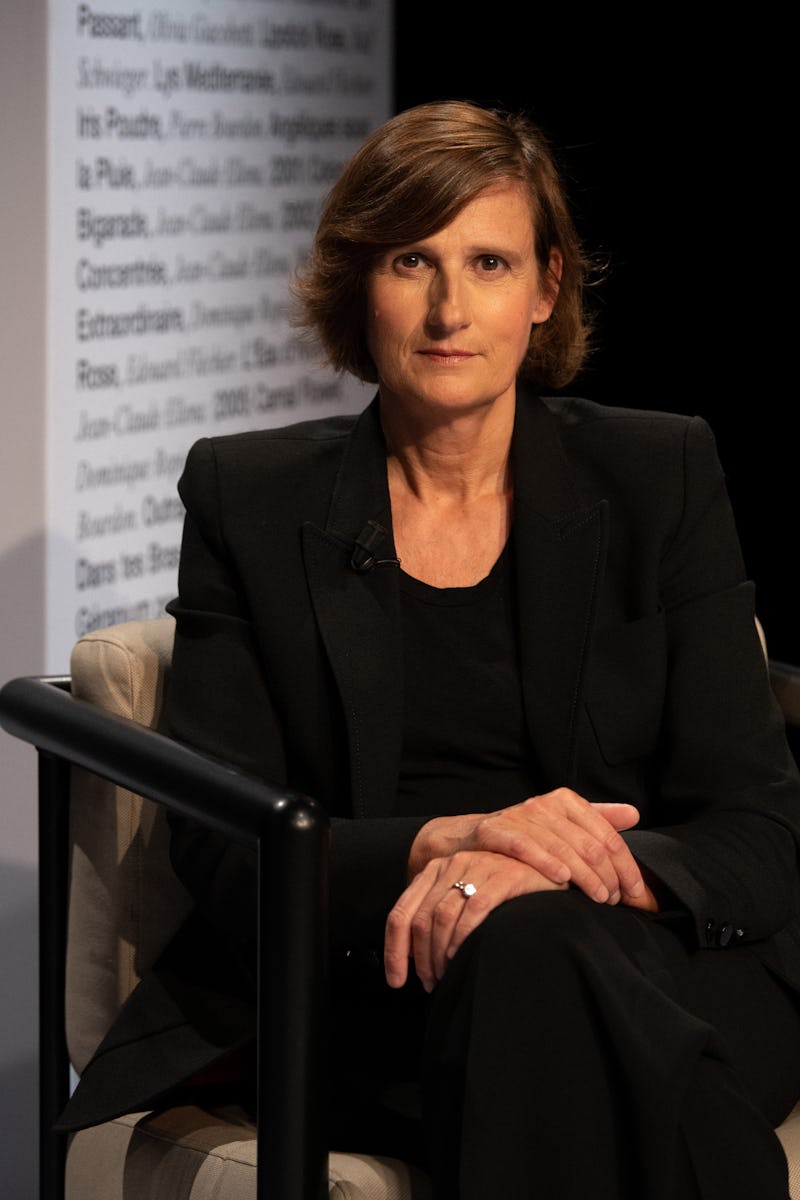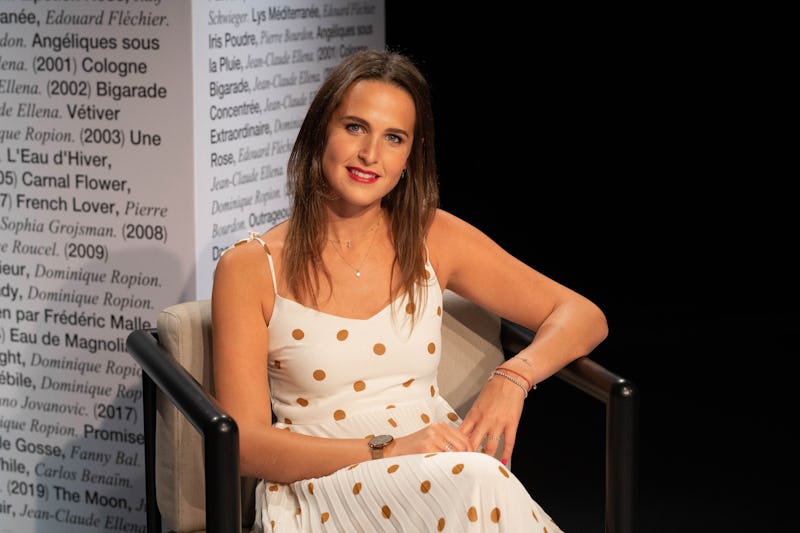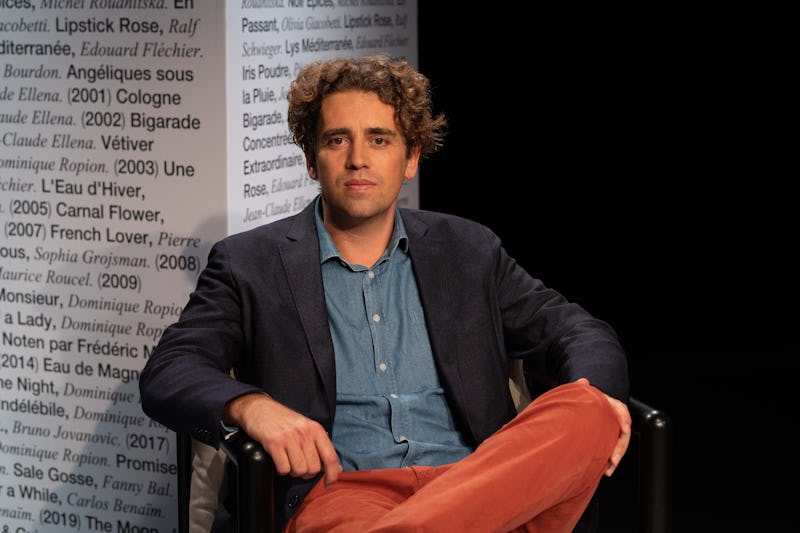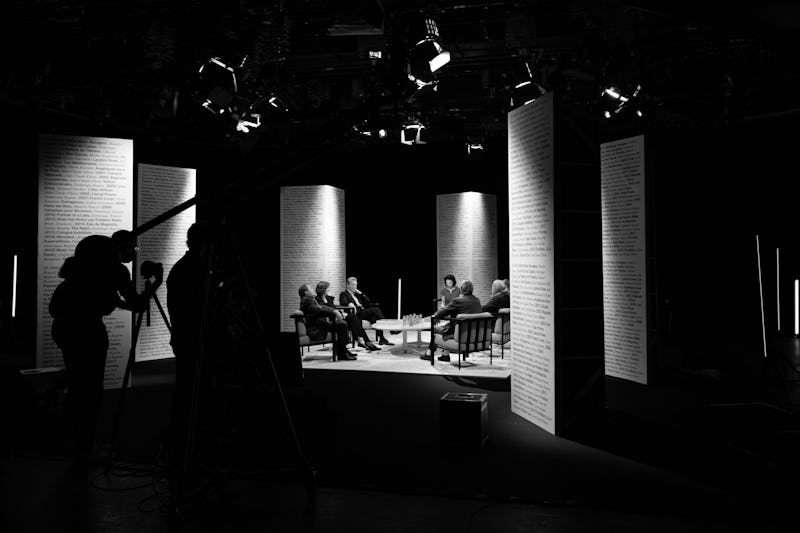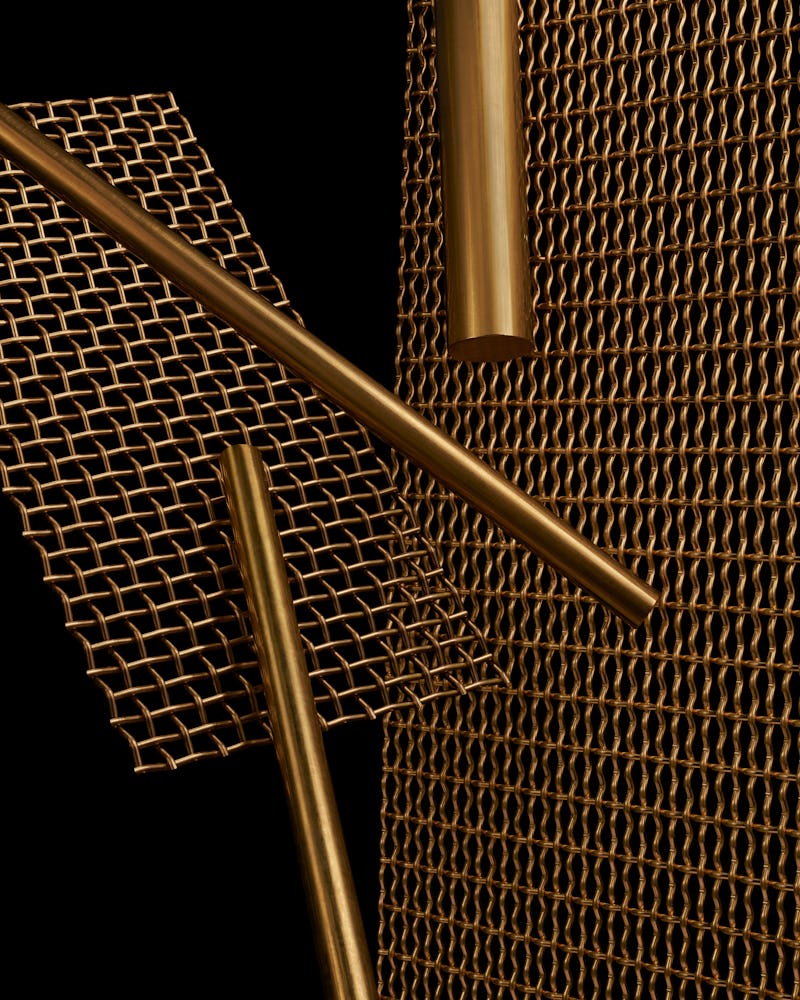THE TWENTIETH
ANNIVERSARY
PERFUME SUMMIT
To celebrate the first twenty years of the perfume publishing house that he founded in 2000, Frédéric Malle wanted to pay homage to the perfumers who have joined him in this singular adventure. In Paris on the 24 and 25 of September 2020, for the first time, he brought together some of the greatest perfumers in the world, who, under his leadership, have contributed to restoring the art of (now so-called luxury) perfumery back to its rightful place.
Perfume Summit video
On a stage elegantly adorned with the emblematic twentieth anniversary frieze, which lays out the chronology of the creation of all the house’s perfumes, Frédéric Malle was surrounded by perfumers both veteran and debutante: Pierre Bourdon, Dominique Ropion, Jean-Claude Ellena, and Maurice Roucel, but also the very latest arrival in the “Frédéric Family”: Anne Flipo. Perfumers Fanny Bal, Bruno Jovanovic and Julien Rasquinet also joined the star perfumers to make individual video capsules, to be released shortly.
Hosted by Isabelle Giordano, the event took on a talk show format, with all participants entering freely into enthusiastic dialogue on the passion that unites them all: perfume.
Because when you bring perfumers and their publisher together, you can be sure the conversation won’t stray far from the subject of perfume—whether in the form of anecdotes on the history of the creation of one or another “juice” (a word that Pierre Bourdon “detests,” just like the word “nose”—he prefers the term “perfume composer”), commentaries on the way in which they were created, revelations on the composition of some long-forgotten perfume, or expert remarks on the particular qualities of a single molecule.
(From left to right) Pierre Bourdon, Dominique Ropion, Jean-Claude Ellena, Maurice Roucel, Anne Flipo and Frédéric Malle
It’s obvious that for the publisher Frédéric Malle, it was an occasion for joy and pride to see so many great talents brought together around him, many of them brothers in arms and dear friends. There is a striking simplicity and generosity in the way they interact—rather rare qualities in such a competitive milieu. Evidently, star perfumers don’t necessarily act like stars.
Questioned by Isabelle Giordano on his origins, Frédéric Malle replies modestly that he was lucky enough to have been born into a world of perfume and culture, two spheres in which he was cradled from five years of age. He defines himself as “a perfume all-rounder” (that is, an expert in all aspects of the craft). As for the origin of the name of the brand he created twenty years ago, he tells us that it is an homage to the company Les Nouvelles Éditions de Films which his father created for his uncle Louis Malle. As for his role as perfume publisher, he defines it as that of a collaborator and midwife for perfumers, a role very close to that of his friend, the publisher Manuel Carcassonne.
The conversation is punctuated with numerous anecdotes—on his encounter with the photographer Irving Penn in New York when he was working for Christian Lacroix parfums, or on his interest in the Bauhaus movement, which strongly influenced the design of the unique bottle in which all the collection’s perfumes are presented.
The 20 Year Anniversary limited edition perfumes and book published by Rizzoli New York
Each of the perfumers present around the table discuss their personal motivations for joining Frédéric Malle’s project back in 2000, whose innovative spirit and unique character must be kept in mind.
Jean-Claude Ellena (creator of Bigarade Concentree in 2002, L’Eau d’Hiver in 2003, and Rose & Cuir in 2019) paid homage to the contribution Frédéric Malle made to the craft when he had the idea of asking perfumers to sign their creations, thus giving them the status of artists. He emphasizes in passing that this is a kind of commitment that not all perfumers are ready to make…
Anne Flipo, the latest arrival in Frédéric Malle’s “Perfumer’s Club” (her creation for Editions de Parfums will be on sale in 2021), unhesitatingly calls it a “wonderful” collaboration involving exchanges that were always productive: “we constructed a story together, the two of us.”
Dominique Ropion
Maurice Roucel
Dominique Ropion
Maurice Roucel
Maurice Roucel (who we have to thank for the celebrated Musc Ravageur, but also the less well known Dans Tes Bras, authored in 2008) opts for a sporting metaphor: he speaks of a game of tennis in which each collaborator must return the ball. But also a literary one—he invokes a vocabulary shared between experts, and says that he considers each perfume to be a story. “We create stories, and leave them for others to discover.”
For faithful accomplice Dominique Ropion (Vetiver Extraordinaire in 2002, Carnal Flower in 2005, Portrait of a Lady in 2010, and Promise in 2017—among others), “every perfume is an encounter.”
Jean-Claude Ellena
Pierre Bourdon
Jean-Claude Ellena
Pierre Bourdon
In reality, like musicians or painters, perfumers each have their own style and their own kind of writing which correspond to their personality. “Each one would paint a different picture” given the same idea, and it is precisely Frédéric Malle’s talent to choose, for a given idea, the perfumer he feels will best be able to develop it.
Bruno Jovanovic
Anne Flipo
Bruno Jovanovic
Anne Flipo
Pierre Bourdon (Iris Poudre in 2000, French Lover in 2007) recalls how the off-the-shelf mode of distribution pioneered in the 1990’s resulted in a drastic change in how perfumes were created. What are called “top notes” suddenly became the most important, because of the need to immediately seduce customers who sometimes spent very little time in choosing a perfume. We went from “seduction over time,” an allusion to the primary qualities sought in a perfume, swathing the wearer in a slowly diffusing aura, to “seduction in order to make a sale.” And this is why Frédéric Malle’s project in 2000 came just at the right time: he allowed great perfumers to return to the essence of their craft—to innovate, to make creations of which they could be “proud.” For him, risk-taking and courage are the indispensable values of a great perfumer, just as they are for a great artist.
Fanny Bal
Julien Rasquinet
As for the debate “natural vs synthetic,” the perfumers and their publisher answer in chorus and speak in unison, recalling that perfumery is a technological art in the sense that the birth of contemporary perfumery coincided with the emergence of chemistry at the end of the nineteenth century. It was during this period that the great perfumers Coty and Guerlain showcased their talents. For Anne Flipo, it is obvious that “the natural has its limits,” and Maurice Roucel openly admits to “needing all the available letters in order to write.” So there’s no question of regarding natural ingredients as sacred, to the detriment of synthetic molecules. In fact, the latter are necessary for the existence of certain fragrances. On the other hand, the publisher and his perfumers agree that ecological awareness is crucial, and that it is indispensable to find renewable sources when natural ingredients are used.
But according to Dominique Ropion, the question of raw materials is ultimately secondary for the perfumer, who works above all with evocations—primarily with their imagination, he emphasizes, far more than with their memory, as is too often thought!
